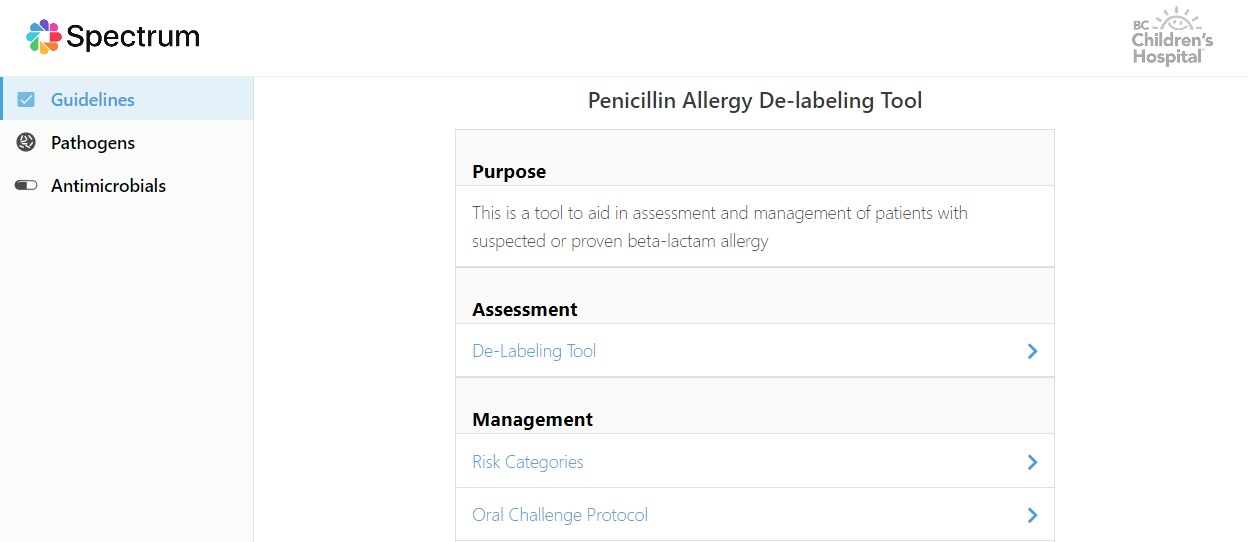At BC Children's Hospital, penicillin allergy de-labeling is used proactively to check to see if all penicillin allergy labels are accurate. This helps to identify patients who can safely receive penicillin and other β-lactam antibiotics, contributing to quality care. Dr. Tiffany Wong, pediatric allergist and Hudson Scholar, BC Children's Hospital, and Dr. Chelsea Elwood, reproductive infectious diseases specialist, BC Women's Hospital + Health Centre, co-developed the Drop the Label campaign and it is having lasting impacts for patients.
 Ten per cent of patients in North American studies report having a penicillin allergy label; however, upon full evaluation by an allergist, 90 per cent of these people do not have a true penicillin allergy. "There is robust evidence to indicate that penicillin allergy labels are associated with less effective, more expensive therapy with increased risk of adverse effects and antimicrobial resistance when alternative medications are used," says Dr. Wong.
Ten per cent of patients in North American studies report having a penicillin allergy label; however, upon full evaluation by an allergist, 90 per cent of these people do not have a true penicillin allergy. "There is robust evidence to indicate that penicillin allergy labels are associated with less effective, more expensive therapy with increased risk of adverse effects and antimicrobial resistance when alternative medications are used," says Dr. Wong.
Penicillin allergy assessments are traditionally done by allergists but often there are few allergists and many people who need assessments. Some patients who don't receive an assessment end up receiving less desired, alternate therapy.
"Since it was launched in June 2021, this tool has already been used in clinical settings at least 60 times between BC Children's Hospital and BC Women's Hospital + Health Centre," says Dr. Wong.

The challenge for busy health care providers is lack of confidence and knowledge in assessing the risk of a penicillin allergy. Therefore, Dr. Wong and Dr. Elwood co-created a point-of-care risk assessment tool to guide busy care providers through a penicillin allergy assessment. The app allows for real-time history taking and electronic answer submission. The tool launched in June 2021, and it is available for anyone to use, free: BC Children's Hospital: Penicillin Allergy De-labeling Tool
"The app provides real-time guidance through risk assessment and recommendations are provided," says Dr. Wong. "It eliminates the need to look up practice guidelines and to work through flat-form algorithms. This app will continue to be useful for assessment of patients being seen in hospital but also in community settings with a label of penicillin allergy. It's ideal use is for assessment prior to needing any antibiotic therapy, so that the best antibiotic may be used when the time comes."
For more information, visit www.dropthelabel.ca. This website has additional health care provider resources, a teaching video and a Q&A that can be shared with patients.
Source of the original interview: Antimicrobial Stewardship and Penicillin Allergy De-Labeling, An interview with Dr. Tiffany Wong MD, FRCPC, and Dr. Chelsea Elwood B.M.ScH, M.Sc, MD, FRCSC, BC Women's & Children's Hospital, May 28, 2021, spectrum.app/blog/penicillin-allergy-delabeling.
